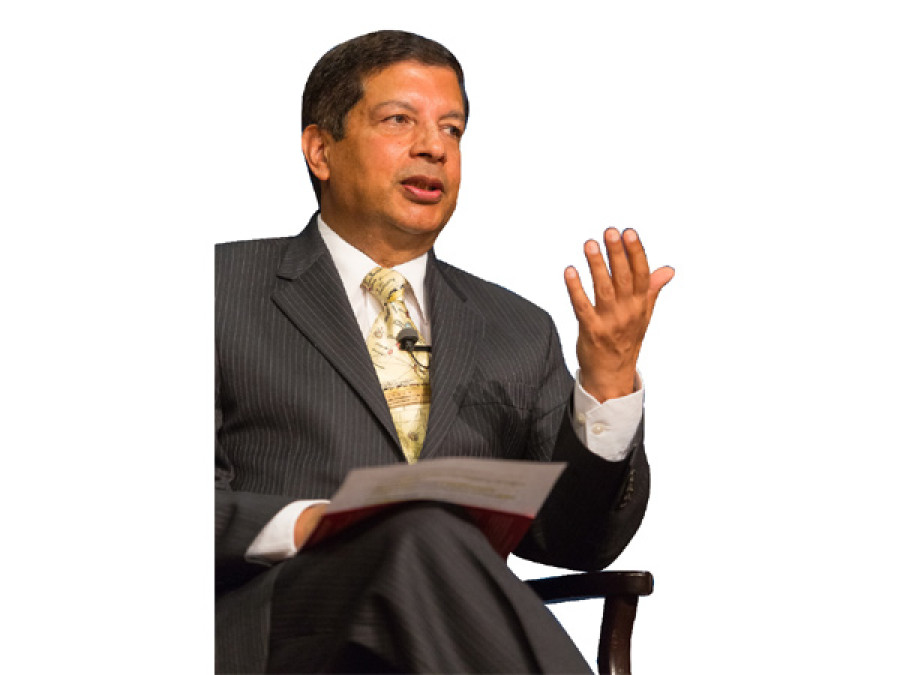Entertainment
Inspiring global citizens
A veteran economist, Shankar Sharma is known for his relentless engagement in the development sector
A veteran economist, Shankar Sharma is known for his relentless engagement in the development sector. He recently worked on drafting the new constitution as a lead consultant. Sharma talked to The Post’s Alisha Sijapati on his love for reading. Excerpts:
How did you first come to love books?
It was when I went to the US for my graduate studies that I started reading more books. This was because of the easier availability of second-hand books and even free books in the dorms, university library, bookshops and garage sales. Very good books are available in dirt-cheap prices in these places.
What was the last book you read and how did you like it?
The last book I read was Party Politics and Economic Reform in Africa’s Democracies by M Anne Pitcher. The author argues that the trade-off between reforms and discretionary decisions in developing countries depend on the quality of democracy and the nature and logic of party politics. Democratic quality and the characteristics of party system interact with each other. Where democratic quality is high and the party system is stable, government exercises their decision-making process to manage conflicts arising from reform, but they do so within the limits of the law and without reneging on the policy choice.
Where democratic quality is low and the party system is fragmented, uses of government discretion are more arbitrary and the consequences for reforms are more unpredictable. The book further claims that the formal adoption of institutions consistent with the creation or expansion of a market economy constitutes a necessary building block in the development of such an economy over time.
Which book do you want to read next?
I am currently reading States Falling Apart? Secessionist and Autonomy Movements in Europe by Eva Maria Belser and published by the Institute of Federalism. This book which deals with the demands for greater autonomy or independence from regional groups or from the state in a number of European countries, with theoretical justification and arguments, could be useful in analysing some of the issues related to federalism in Nepal.
The movements may vary in their intensity and demands, but the book argues that they also have many common features. The book provides theoretical contributions, case studies and presents a wide range of facts and arguments on these issues.
What is your favourite genre and why?
I do not have a specific favourite genre, but books and theories on political economy have always intrigued me.
How do you select books to read?
My selection goes mainly by theme- economics, diplomacy and federalism. However, it is influenced by the internet. Reviews published in Nepal and elsewhere are also good source of information about books. However, I have not been able to get my hands on a few books I’d like to read because even though e-books are available these days it is still difficult to purchase them in Nepal.
Name a book that you would or would not recommend, and why?
There is nothing like that. Others may not like some of the books that I enjoy reading. It is basically a personal choice. But given the context of Nepal today, I would like to recommend the book Ethnic Groups in Conflict by Donald L Horowitz, which is one of the classic books on ethnicity and conflict.
Do you prefer fiction or non-fiction? Why?
I prefer non-fiction. The main reason for selecting this category is that I have been engaged in research, consulting and
government activities for the last several decades. I opt to read reports, papers and books related to my work. However, during my college days I thoroughly enjoyed some fiction books.
What is good writing for you? What would you say makes a good writer?
I prefer books that are written in simple language and clearly manage to put forth their arguments. Besides emphasising on the theme of the book itself, the writer should also be able to address the expectations of the readers.
Apart from books on social sciences, how have other books affected your life?
They have in several ways. They have provided inspirations, taught life skills, motivated to work hard and encouraged me to become a global citizen. The biographies of accomplished people have also provided me real inspiration. Books written by Nepali writers and published in Nepal have given me deeper insights on Nepal’s history, culture and society.
One book that inspired you a lot and why?
During my graduate studies, one of the books that I read was an autobiography of Lee Iacocca, a very successful executive in American automobile industry. He was best known for taking leadership in Ford Motor Company and later for reviving Chrysler Corporation as its CEO during the 1980s. It was an inspirational book.
Your advice for general readers?
One should read as much as possible. However, because of time constraints, readers may not be able provide enough time to read books of their choice. They can be selective, but should also read Nepali books. They provide good insights on the history, culture, tradition and various other aspects of the country.
Are you writing a book right now? What is the thesis?
Not now.
Anything else on books and reading that you want to add?
Read regularly to improve your productivity and to personally improve yourself to become a more responsible citizen.




 18.12°C Kathmandu
18.12°C Kathmandu









